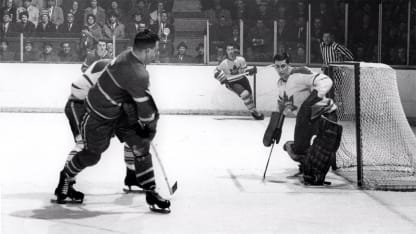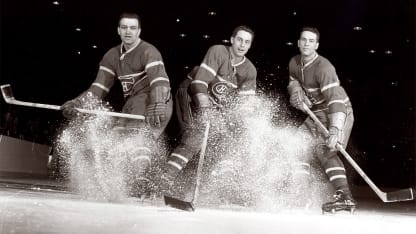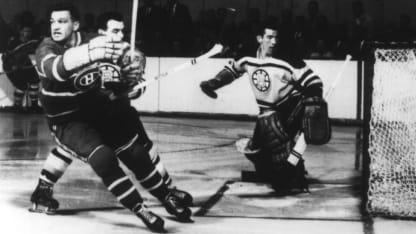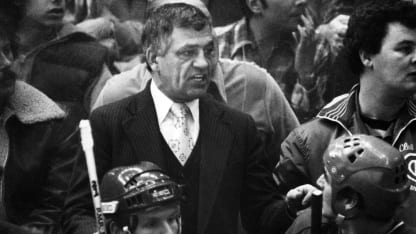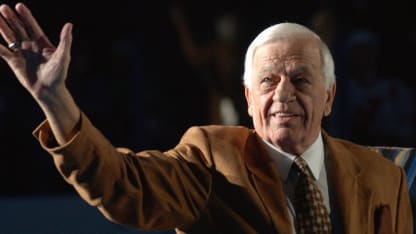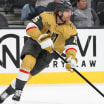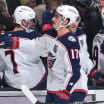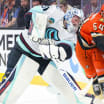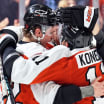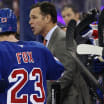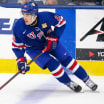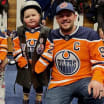Goalie and sniper wore the same uniform again in 1966-67 with the New York Rangers, and again Boomer picked up his ribbing of the man who yielded his milestone goal.
A magnificent print of that goal being scored, taken by then-Canadiens photographer David Bier, was framed for years in Geoffrion's home in Marietta, Ga.
In conversation with and about Maniago, always, Boomer playfully added an accent to the second "e" in Cesare, giving it a French sound.
With the Rangers, Maniago often would show the impact of Geoffrion's heavy shots in practice, which he felt through his equipment.
"Boomer would say: 'Cesaré, keep your head up!'" Maniago told me with a laugh, decibels boosted with a Geoffrion-blustered accent. "He'd say: 'I'm going to score another one and so what if we're on the same team!' And he did. In practice, there was many a day that he'd leave me black and blue.
"I bumped into Boom at the Boston airport years later and he said: 'Cesaré, I still see you every morning,'" Maniago continued. "He said: 'I take my coffee to the den, Cesaré, and there you are -- above my fireplace!'"
It wasn't just with Geoffrion that Maniago remains linked, his connection also strong to two Chicago Blackhawks legends. With the Rangers in 1966, Maniago yielded Bobby Hull's record-breaking 51st goal of the season, and in 1977, with the Vancouver Canucks, he was beaten for the 500th of Stan Mikita's career.
"It's not so bad to be remembered for Boomer's historic goal, no less two more," said Maniago, who stopped many more pucks than he missed on at least a few awful teams. "My favorite? A toss-up between Boomer's 50th and Hull's 51st. …
"I remember a training camp the Canadiens had in Victoria (British Columbia), then playing exhibition games as we worked our way back east. We played one in Trail (B.C., Maniago's hometown), and to fly out of Castlegar you take a sharp right to go up the Kootenay Valley.
"So we take off and we're heading straight for the peaks of the mountains. The fir trees seem to Boom like they're 20 feet below the wing, and he's crossing himself, moaning over and over: 'Is this how it all ends?'
"He had a complete joy for life and he lived every day to the maximum. Boomer was one of my all-time favorites and I'll never forget him. This is such a sad day. I'll shed more than a few tears for him."
Geoffrion would coach the Rangers to start the 1968-69 season but quit after two months because of ulcers.
In the fall of 1972, he stepped behind the bench of the expansion Atlanta Flames, but was devoured by the pressure in two seasons.
And then, Geoffrion was introduced as the coach of the Canadiens for the 1979-80 season, Montreal having won four consecutive Stanley Cup titles, gunning for a record-tying fifth.
"This is the dream of my life," he told reporters at the news conference that unveiled him.
